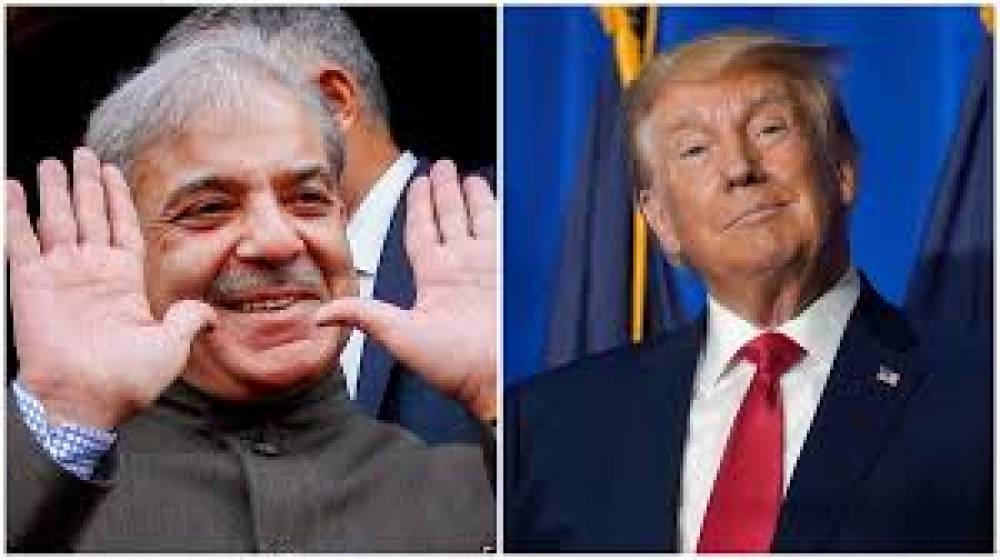
In what appears to be an overt attempt to curry favor with Washington, Pakistan’s Prime Minister Shehbaz Sharif has publicly praised U.S. President Donald Trump, calling him a “man of peace.” During a recent visit to the Pakistan Navy Dockyard in Karachi, Sharif expressed his gratitude to Trump, claiming that the U.S. President played a “key role” in averting war between nuclear-armed neighbors India and Pakistan.
The remarks have raised eyebrows both domestically and internationally, particularly in India, where officials maintain that any ceasefire communication was directly initiated between the military establishments of the two countries, without any U.S. mediation. India has long made it clear that it does not recognize third-party involvement in the Kashmir dispute and will only discuss Pakistan-occupied Kashmir (PoK) in any bilateral context.
Prime Minister Sharif lauded President Trump for his “peace-loving” nature and reiterated his faith in the American leader’s ability to resolve the Kashmir issue. “President Trump is a peace-seeking man. His efforts helped prevent a catastrophic war between two nuclear nations,” Sharif said, adding that he appreciates Trump’s willingness to play an “honest role” in resolving the decades-old conflict over Kashmir.
Critics, however, see Sharif’s remarks as an act of diplomatic desperation rather than strategic foresight. With Pakistan's global standing weakened and its economy in disarray, many believe Islamabad is leaning heavily on Washington for aid and international legitimacy—possibly at the cost of its own credibility.
Trump’s self-proclaimed peacemaking credentials remain questionable. During his campaign, Trump vowed to end the Russia-Ukraine war within 24 hours of taking office for a second term. It has now been three months since his re-election, and the war continues unabated. Initial attempts by Trump to sideline European allies and cut a direct ceasefire deal with Vladimir Putin fell flat. Instead, his administration reportedly pressured Ukraine into mineral extraction deals in exchange for reduced military support.
On the Middle East front, Trump’s position on Gaza stands in stark contrast to Pakistan’s vocal support for Palestinians. Earlier this year, Trump controversially suggested that the United States should “take control” of Gaza and manage it directly. While calling for peace, he backed aggressive Israeli military actions, which have now escalated into a full-scale campaign to seize control over Gaza.
Although The Washington Post reported that the Trump administration had warned Israel that continued military operations could result in the withdrawal of American support, Israeli media refuted this claim. Citing a U.S. official, they called the notion of America abandoning Israel “absurd” despite recent diplomatic tensions.
Sharif’s praise for Trump may be aimed at strengthening Pakistan’s ties with the U.S. at a time when Chinese investments are slowing and Gulf nations are focusing on internal reforms. Islamabad likely sees the Trump administration as more open to transactional diplomacy and might be banking on favorable trade or military deals.
But the cost of such flattery may be high. By calling Trump a “man of peace” despite his controversial and contradictory global policies, Sharif risks further alienating India and diluting Pakistan’s traditional diplomatic stances, particularly on Palestine and Kashmir.
Calling Donald Trump a peace champion might earn Shehbaz Sharif a momentary nod from Washington, but whether it will yield any lasting diplomatic or strategic benefits for Pakistan remains highly uncertain. In the ever-shifting sands of global geopolitics, such statements often serve more as PR moves than policy milestones.